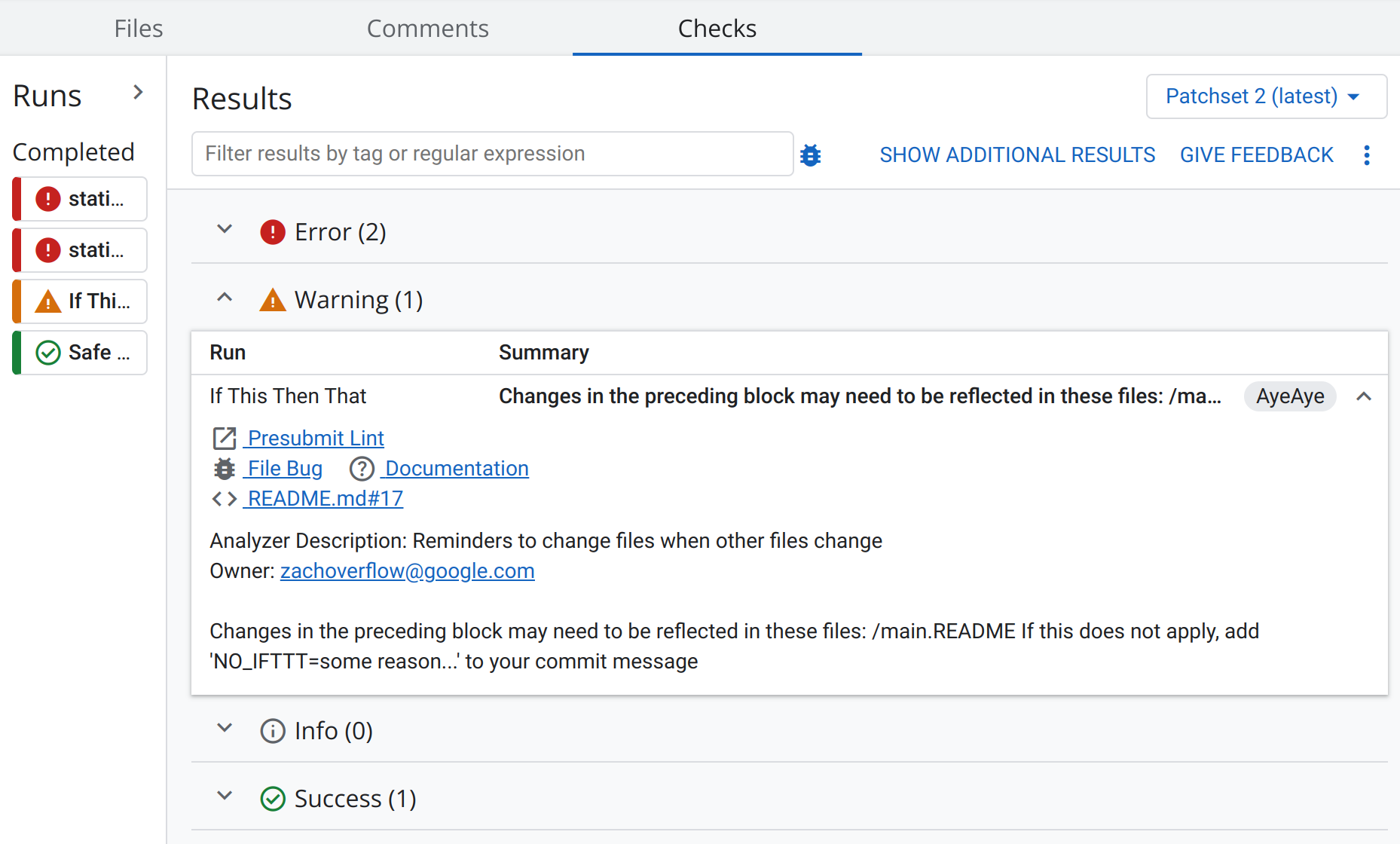All changelists sent to Fuchsia undergo a series of static analysis checks in presubmit.
Types of checks
Language linters
Linters are run automatically for a variety of languages and will leave comments in the Checks tab of Gerrit.
Presubmit tools
Some of the presubmit checks are tools that are language-agnostic but provide stronger confidence in the quality of a changelist.
keep-sorted
keep-sorted is an opt-in linter that enforces that source code lines are kept in
alphabetical order. It can be enabled by wrapping a code block in
keep-sorted
start and keep-sorted
end comments.
For example, the following list's elements will be required to be in alphabetical order, enforced by presubmit checks:
a_list = [
# keep-sorted start
"bar",
"baz",
"foo",
# keep-sorted end
]
keep-sorted is language-agnostic and supports "#" and "//" comments.
See the upstream documentation for all options.
keep-sorted is also enforced by fx format-code.
IfThisThenThat
IfThisThenThat is a check that can be used to ensure files that co-change with one another stay synchronized. If one file changes, a warning is given that the other file(s) should change too in the same changelist. Ideally, such a check should not be necessary, but can come up when executable code needs to be synchronized with configuration files.
IfThisThenThat leaves warnings and so does not block changelist submission.
Example
Unlike other presubmit checks which operate independently, IFTTT checks need to
be manually implemented. To set up a new IFTTT check, insert the special
comments // LINT.IfChange and // LINT.ThenChange(<other_file_path>) in
each file that should be updated together.
In the following example, IFTTT checks are implemented for test.go and
main.rs. If only one of the files change, a warning appears in Gerrit.
test.go
import fmt
// LINT.IfChange
fmt.Println("When this block changes, so must main.rs")
// LINT.ThenChange(main.rs)
main.rs
// LINT.IfChange
println!("When this block changes, so must test.go");
// LINT.ThenChange(test.go)
Note that for Markdown files, the structure must be wrapped in comments so that Markdown ignores the syntax.
<!--
// LINT.IfChange
-->
Block to be changed.
<!--
// LINT.ThenChange(test.go)
-->
IfThisThenThat supports absolute file paths (those that start with /), and
relative paths (those that do not start with /).
If the text within the LINT.IfChange/ThenChange directives is altered, so too
must the other file that is pointed to. Files should always have the LINT
directives in each file that is joined. A one-way directive would mean that one
file can lose synchronization from the other.
If an IfThisThenThat directive is violated, a comment is left on the CL:

The warning also appears on the Checks tab:

